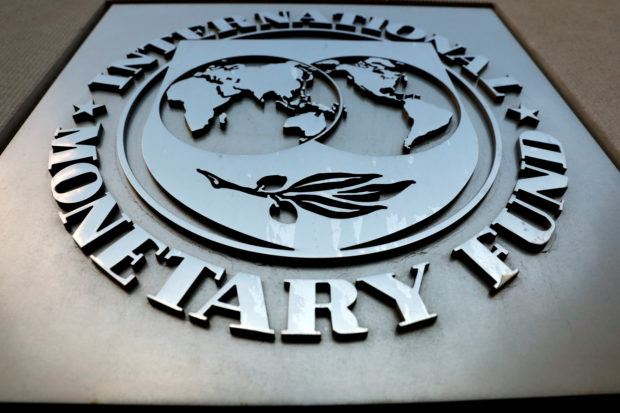PH cautioned against premature rate cuts

The International Monetary Fund (IMF) logo is seen outside the headquarters building in Washington, U.S., September 4, 2018. REUTERS/Yuri Gripas/File Photo
MANILA -The Philippine financial market would do best to wait a few more months before pushing for interest rate reductions considering that factors turning up the pressure on prices of goods and services remain persistent, according to the International Monetary Fund (IMF).
Ragnar Gudmundsson, the IMF’s resident representative to the Philippines, said at an economic briefing hosted by the Bangko Sentral ng Pilipinas (BSP) as a follow up to the President’s State of the Nation Address delivered on Monday.
After two policy meetings when the Monetary Board made no changes to its benchmark interest rate, keeping its overnight borrowing rate at 6.25 percent, market analysts are now guessing how soon this will be reduced to encourage more spending.
Proactive central bank
Gudmundsson said the BSP has been very proactive and really took prompt action to tackle inflationary pressures that were building up last year, and raising the policy rate by 425 basis points.
But he also noted that core inflation in the Philippines—volatile prices of food and energy goods excluded—remains high at 7.4 percent in June when headline inflation was 5.4 percent.
READ: Food inflation rate down to 8%, non-food at 5.5% — Neda
Appropriate levels
“We believe that this ‘higher for longer’ stance in the near term is still appropriate to anchor inflation expectations and really to ensure that inflation returns to the BSP’s target range of 2 percent to 4 percent,” the IMF representative said.
“This tighter for longer stance is important not only from a domestic perspective, but also to guard against potential capital outflows, which is still a relevant concern,” he added. “Keeping this stance is also important to guard against the risk of excessively fast currency exchange rate depreciation.”
Gudmundsson added that it is important to pay close attention to the possible upside risks to inflation in the remainder of this year and early 2024.
“These upside risks could stem from El Niño, wages amid tight labor conditions, and we are still in an international environment where we see volatility in commodity prices ,” he said.
READ: DA focusing on rice output to ease El Niño impact on food
In a commentary, Goldman Sachs said that across the region, core inflation remained more persistent than headline inflation, though it is still declining in most cases. INQ
